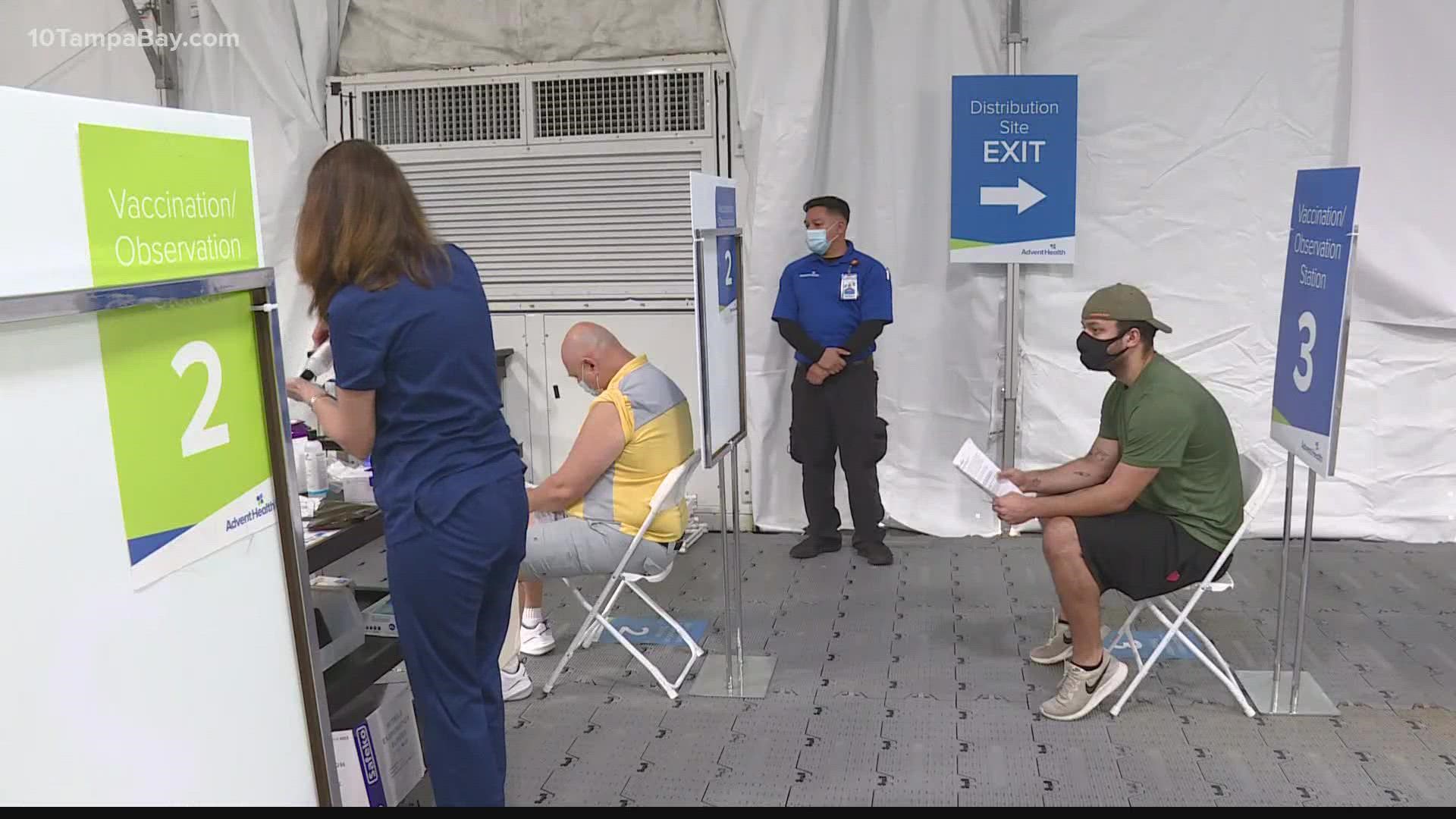TAMPA, Fla. — The COVID-19 delta variant is by far the most dominant variant circulating right now in the United States, according to the Centers for Disease Control and Prevention.
The CDC says the delta variant is considered to spread more easily from person to person compared to other variants that have been detected so far throughout the pandemic.
Scientists determine the prevalence of a particular variant through genomics testing and DNA sequencing but according to Dr. Jill Roberts, a molecular epidemiologist at the University of South Florida, the U.S. is only running genomics on about 10 percent of positive cases.
Roberts says this is due to a lack of resources such as money, equipment and staffing to run genomics on more specimens.
Universities sometimes will get involved to perform DNA sequencing, and Roberts currently has two students working in labs in California doing this very thing to determine variants.
Here's how the United States is gathering data on variant transmission:
- A person gets a COVID-19 test and the test is positive.
- For the majority of specimens in the U.S., that’s where the journey ends. You’re either positive or negative. No further information.
- For some samples in areas with the capacity to do so, the journey continues, but the sample is striped of patient information.
- This is when genomics testing comes in to determine variants. This requires an extensive computer system in a lab to ingest the specimen and perform DNA sequencing.
- Finally, a researcher must interpret the computerized sequencing to confirm the variant.
- Then, the CDC compiles this information and makes the best projection they can based on the data they have to determine the prevalence of a variant.
At the time of this article, the CDC says 82.2 percent of positive COVID cases in the U.S. are the delta variant. What that really means in 82.2 percent of the cases that were tested were the delta variant, which is less than 10 percent of all positive cases.
Many scientists, including Dr. Ben Jacob, a researcher at USF with a specialization in spatial modeling, says we need more resources for genomics testing and consistency when doing DNA testing. While there's a methodology or recipe to follow, different labs use different approaches when determining variants.
Bottom line: The dominance of the COVID-19 delta variant is not an exact science in the United States.

